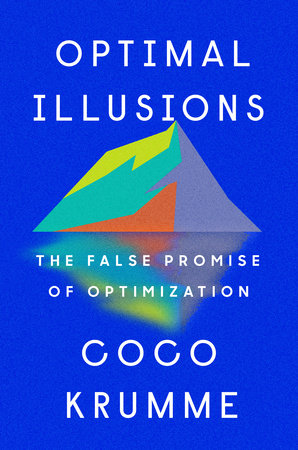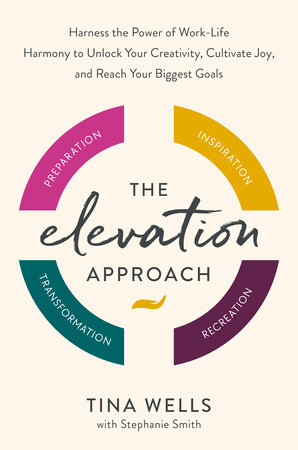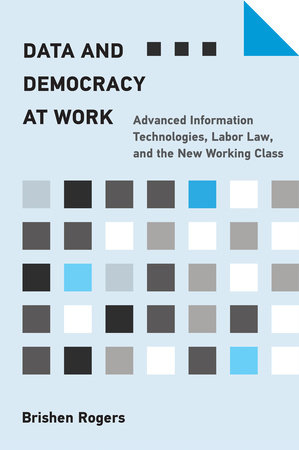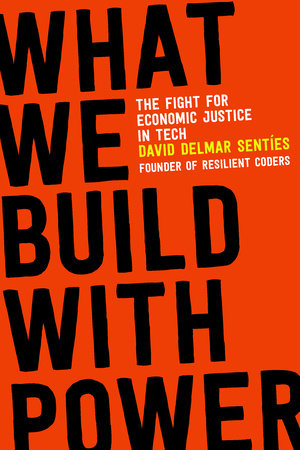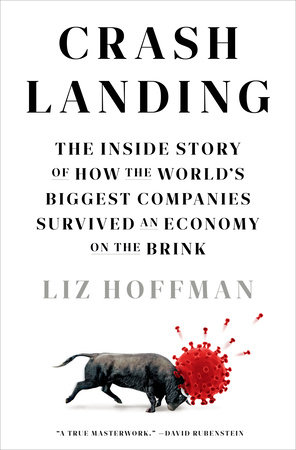Quick Summary
One Sentence Summary
“Soul Over Matter” combines ancient wisdom with modern knowledge to offer a unique perspective on how the soul can influence one’s financial and physical wellbeing.
Big Idea
The core premise of “Soul Over Matter” is that wealth and success can be achieved through spiritual and energetic practices, linking the health of the soul directly to financial abundance.
Five Key Ideas
- The Concept of Soul Healing: The book introduces the idea that financial distress or lack can be a reflection of the soul’s condition, and that healing the soul can lead to material abundance.
- Ancient Wisdom and Modern Finance: It bridges the gap between Eastern spiritual teachings and Western financial strategies, suggesting that a blend of both can lead to prosperity.
- The Power of Mantras: The authors emphasize the use of positive affirmations and mantras to reprogram the mind and soul for success, much like the practices discussed in “The Miracle Morning” by Hal Elrod.
- The Significance of Giving: There’s a strong emphasis on generosity and the principle that giving can attract more wealth, akin to the ideas in “The Life You Can Save” by Peter Singer.
- Practical Tools and Exercises: The book provides readers with actionable techniques to apply soul healing to their finances, in a manner reminiscent of the exercises found in “The Seven Habits of Highly Effective People” by Stephen R. Covey.
Actionable Advice
- Practice Daily Affirmations: Incorporate daily mantras that focus on wealth and health to align your soul’s purpose with your material goals.
- Heal Your Soul: Engage in soul healing practices to remove spiritual blockages that may be hindering financial success.
- Serve and Give: Make service and generosity a regular part of your life to cultivate an abundance mindset.
About the Author
Dr. Zhi Gang Sha is a spiritual teacher, healer, and the author of several books on soul healing and spirituality. Adam Markel is a recognized expert in professional and personal reinvention, known for his transformative leadership strategies.
Read Next
For those intrigued by the spiritual aspect of success, “The Seat of the Soul” by Gary Zukav would be an excellent follow-up, as it delves deeper into the connection between spiritual development and the physical world. If the financial advice piqued your interest, “Think and Grow Rich” by Napoleon Hill might be your next stop, offering a time-tested philosophy on personal success.
In Depth
The Concept of Soul Healing
“Soul Over Matter” presents the compelling concept that financial struggles can mirror imbalances or ailments within the soul. It’s not just about what’s in your bank account; it’s about the state of your inner being. The soul, as described by Dr. Sha and Adam Markel, isn’t just a spiritual entity; it’s the essence that drives our intentions, actions, and ultimately, our material outcomes.
Imagine your soul as a garden. If it’s untended, overrun with weeds, nothing fruitful can flourish. The book argues that the same goes for our financial lives. A soul cluttered with negative thoughts and unresolved emotional issues is like that unkempt garden. It needs care and attention to yield the fruits of abundance.
One striking example in the book is the story of a businessman who faced continuous financial hardship. Despite his best efforts, success eluded him. The authors detail his journey of soul healing, where he discovered that a deep-seated belief of unworthiness was sabotaging his financial success. Through the practices outlined in the book, he began to work on healing this aspect of his soul, eventually finding that as he released these negative beliefs, opportunities and prosperity began to flow into his life.
The process wasn’t overnight magic—it required dedication and the implementation of regular practices. One such practice is the chanting of mantras, designed to cleanse the soul and align it with positive frequencies. By repetitively voicing positive intentions, the businessman transformed his inner narrative from one of scarcity to one of abundance.
Here’s where the authors weave in a powerful principle. They suggest:
“To heal your finances, heal your soul first. When you heal your soul, the rest follows.”
This quote encapsulates the essence of the first key idea. It isn’t about manipulating external circumstances; it’s about starting with the soul and allowing the external changes to manifest from this inner transformation.
This soul-centric approach also encourages the reader to look within and ask tough questions. What beliefs are holding you back? What negative patterns are repeated in your financial history? The book then guides you through a process of identifying these issues at the soul level.
Dr. Sha and Markel don’t just leave you with the ‘what’—they dive into the ‘how.’ They present practical exercises, such as visualization and meditation, designed to facilitate this healing. For instance, visualizing golden light penetrating the body and soul, cleansing and healing every part, is one of the practices recommended to recalibrate the soul’s energy for prosperity.
This key idea is a call to action for a deep and honest self-assessment. It’s about recognizing that external wealth starts with internal richness. The narrative drives home the belief that by nurturing the soul, by ensuring it’s healthy and vibrant, you pave the way to not just financial stability, but true wealth in every aspect of life.
Ancient Wisdom and Modern Finance
The book makes a strong case that financial savvy doesn’t just come from the latest market trends or business strategies; it has roots in timeless spiritual practices. This key idea stitches together the rich tapestry of Eastern philosophies with the sharp cut of Western financial acumen.
It’s like a mash-up of worlds—the quiet contemplation of a Buddhist monk meets the bustling energy of Wall Street. “Soul Over Matter” insists that the two, seemingly at odds, are actually complementary. Ancient wisdom offers a well of insight that can profoundly impact modern money-making methods.
Take, for example, the principle of balance, a cornerstone in Eastern philosophy. In the book, this concept is applied to financial decision-making. The authors talk about a business owner who constantly faced the feast-or-famine cycle in her earnings. She applied the Eastern principle of balance to manage her finances, smoothing out the extreme highs and lows. She did this by setting aside a portion of her income during peak times, a simple yet effective strategy reminiscent of the ancient wisdom to ‘store grain for a rainy day.’
The authors plant this idea with a striking quote:
“True abundance comes from a state of harmony and balance, not just a healthy bank account.”
This sentence acts as a bridge connecting spiritual equilibrium with financial stability. The book doesn’t shy away from numbers and pragmatic advice, but it frames these within a larger context of spiritual well-being.
The business owner’s story is a practical translation of the book’s philosophy. After integrating meditation into her daily routine, she reported clearer thinking, better stress management, and more grounded decision-making in her business. It wasn’t that she had discovered a new financial strategy; she had found a new state of being from which to operate.
This blend is what “Soul Over Matter” champions—a holistic approach where success is measured not just by material wealth, but by the richness of one’s inner life and its harmony with the outer world.
The authors argue that this marriage of concepts is not just beneficial but essential in today’s fast-paced, often disconnected world. In a society where burnout and disconnection are rampant, ancient wisdom offers a grounding force, a reminder that wealth is not the end goal but a byproduct of a balanced life.
“Soul Over Matter” doesn’t just tell you to balance your checkbook; it nudges you to balance your life. By integrating mindfulness practices, ethical living, and generosity, alongside sharp financial planning and strategy, the book suggests you can create a more sustainable and fulfilling path to prosperity.
Through this lens, every financial decision becomes an extension of one’s values and spiritual beliefs, creating a holistic path to abundance that is both soul-satisfying and materially rewarding.
The Power of Mantras
“Soul Over Matter” elevates the mantra from a spiritual chant to a tool for financial transformation. The key idea here is that the words we repeat have power, echoing not just through our minds, but into our lives and bank accounts.
The authors aren’t just talking about positive thinking; they’re talking about positive affirming with a spiritual frequency. It’s the idea that when you vibrate with abundance through your mantras, you attract abundance in reality. Simple, yet profound.
A case in point is the tale of a woman struggling with debt. She used the mantra “I am a money magnet” as prescribed in the book. But it wasn’t a one-off. She chanted it daily, with conviction and feeling, until it became a core belief. The book charts her journey from skepticism to witnessing real change in her financial situation.
The authors encapsulate this transformation with a quote:
“Mantras aren’t just words; they’re the music of the soul that can harmonize your life with abundance.”
She didn’t win the lottery or stumble upon a fortune. Instead, opportunities began to appear: a job offer, an unexpected repayment of a loan she’d written off, a discount on a critical purchase. These weren’t miracles but the results of her aligning her soul’s frequency with that of abundance.
This key idea is about consistency and belief. Chanting mantras isn’t a quick fix; it’s a practice, one that the book suggests requires as much discipline as budgeting or investing.
“Soul Over Matter” provides a series of mantras for different areas of life, not just money. Health, relationships, wisdom—all areas can be enriched with the right mantra. But it’s not a mindless repetition; the authors stress the importance of intention. You must infuse each chant with specific, focused energy for the area you want to grow.
It’s like programming: the mantra is the code, and your soul, the computer. You’re installing new software to run your life differently. And just like in “The Power of Habit” by Charles Duhigg, this book understands that change starts with a loop, a repeated cycle that eventually becomes automatic.
The woman’s success with her debt is one of many examples where mantra-chanting, as prescribed by Dr. Sha and Markel, shifted someone’s financial destiny. But they’re not selling a fantasy. They acknowledge the practical side of finance and don’t suggest mantras as a replacement for good economic practices. Rather, they offer them as a supplementary force, giving you an edge in the mental game of wealth creation.
This idea is a game-changer for those who have tried everything else financially and found something lacking. By incorporating the power of mantras, “Soul Over Matter” proposes that the missing link between effort and result is often found in the vibrations of our own voice.
The Significance of Giving
The book “Soul Over Matter” drives home the principle that generosity is not just a noble virtue but a strategic move towards attracting more wealth. The idea is simple: what you give, you get back in spades. It’s the universal law of giving and receiving, applied to the realm of personal finance.
The authors argue that the act of giving sets off a ripple effect. It starts with the individual and extends outward, impacting the community and, eventually, returning to the giver in various forms of abundance.
There’s a story they share about a small business owner who was barely making ends meet. Despite her financial fears, she began to donate a percentage of her profits to local charities. It was a leap of faith, driven by the belief in the book’s message:
“Give with love and without the expectation of return, and watch as the universe orchestrates its return in ways you might never have imagined.”
The business owner’s experience was transformative. After she started giving, her business began to flourish. She attracted new clients who were aligned with her values of giving and community service. Her act of generosity created a brand identity that resonated with people, and her network expanded.
This isn’t to say the book advocates for giving away your last dime in hopes of a financial miracle. The narrative is more nuanced. It’s about integrating the spirit of generosity into your life as a constant practice, not just as a one-time event or a tax write-off.
The authors emphasize that the intention behind the giving is crucial. It’s not a transactional act but a way of living that opens up channels of abundance in one’s life. They suggest that when you give genuinely, you signal to the universe that you trust in its abundance, which, in turn, opens up more avenues for receiving.
“Soul Over Matter” doesn’t leave the reader with just theory; it provides actionable advice. Start small, if big is not possible. Give your time if money is tight. The point is to get into the habit of generosity, to make it a part of your financial strategy.
The case of the small business owner illustrates this beautifully. Her giving didn’t just improve her finances; it also improved her sense of well-being and connection to her community. It’s the book’s way of showing that the value of giving goes beyond money—it enriches your soul, and that is where the true wealth lies.
This key idea aligns with the book’s overall message that wealth is not just about accumulating more but about creating a cycle of prosperity that uplifts all involved. The authors present giving as an essential ingredient in the recipe for a successful and fulfilling life, both materially and spiritually.
Uniting Soul and Business
“Soul Over Matter” champions a novel yet ancient principle: the integration of soulful practices into business endeavors. It’s not about separating your spiritual self from your professional self but rather merging them to create a holistic version of success.
The authors present the case of a real estate agent who was struggling to sell properties in a sluggish market. Instead of pushing harder with traditional tactics, she turned to the soul-healing techniques advocated in the book. She began each day with a meditation focused on connecting with the essence of her clients, visualizing them finding their perfect homes.
Her perspective shifted from selling to serving, from transactions to relationships. And then, the sales followed. The authors encapsulate this shift with the line:
“When your soul leads, success is not just achieved—it’s experienced.”
The example shows how, when the agent started operating from a place of service, grounded in her soul’s values, her work stopped feeling like a grind and started feeling like a mission. She didn’t just see a boost in her sales figures; she also felt more fulfilled and aligned in her career.
The idea here is profound yet practical: infuse your business with soul. It’s not just about ethics; it’s about the energetic imprint your business has in the world. The book suggests that businesses with soul resonate more deeply with customers, leading to long-term loyalty and sustainable success.
This key principle goes beyond mere business strategy. It’s about the vibration you bring to your work, the intention behind your actions, and the authenticity of your engagements. It’s not just what you do but how and why you do it.
Dr. Sha and Markel are essentially proposing a form of conscious capitalism, where businesses are measured by more than their profit margins—they’re measured by their positive impact on the world.
The real estate agent’s story is just one example of how applying soul principles to business doesn’t detract from profitability; it enhances it. This is the kind of approach that could find synergy with the ideas in “Good to Great” by Jim Collins, where business success is about more than just financial gain—it’s about making a meaningful mark.
The authors are advocating for a renaissance in business practices, one where the soul is not checked at the door but is instead the guiding force. It’s a radical departure from cutthroat competition and a move towards a more compassionate, soulful economy.
In this sense, “Soul Over Matter” is not just a finance book; it’s a manifesto for a new way of business, where success is as much about the well-being of the soul as it is about the bottom line.
Actionable Advice
- Meditate Daily: Start your day with a meditation focusing on what you want to achieve financially and spiritually.
- Chant Mantras: Pick a financial abundance mantra and chant it regularly to align your energy with prosperity.
- Be Generous: Integrate giving into your financial plan, whether it’s money, time, or resources, to activate the law of giving and receiving.
- Blend Business with Soul: Infuse your work with your soul’s values, focusing on serving others rather than just selling to them.
- Practice Gratitude: Keep a gratitude journal and write down three financial blessings you’re thankful for each day.
- Visualize Success: Spend a few minutes daily visualizing your goals as already achieved, feeling the success as if it’s present now.
- Learn Continuously: Educate yourself on financial matters and soulful practices. Read books like “Think and Grow Rich” by Napoleon Hill for finance and “The Power of Now” by Eckhart Tolle for spirituality.
- Network with Intention: Connect with others not just for what they can offer you, but for what you can offer them, creating a network of mutual support.
- Reflect Regularly: End your day by reflecting on your financial and spiritual progress, making adjustments as needed for balance.
About the Author
Dr. Zhi Gang Sha is a renowned spiritual teacher, healer, and humanitarian. With a background in both western medicine and traditional Chinese medicine, he blends ancient wisdom with modern practice. Dr. Sha is the creator of Soul Mind Body Medicine, a system for healing and life transformation that integrates the essence of traditional Chinese acupuncture with the power of soul. His work extends beyond healing into the realm of soulful personal development, where he teaches individuals how to empower their lives through the nurturing of their souls. He’s penned numerous bestselling books, including “The Power of Soul,” which outlines his philosophy that the soul is the key to unlocking health, happiness, and success. Dr. Sha’s beliefs are rooted in the power of soul over matter, the idea that a harmonious soul can positively influence one’s physical reality. His teachings have garnered a global following, with many embracing his mantra that “heal the soul first; then healing of the mind and body will follow.” Through his writings and speaking engagements, he advocates for a life of service, encouraging his readers and students to contribute to world peace and healing.
Read These Next
You might like these similar books
- “The Power of Now” by Eckhart Tolle
- “Think and Grow Rich” by Napoleon Hill
- “The Seven Spiritual Laws of Success” by Deepak Chopra
- “The Power of Intention” by Wayne Dyer
- “The Four Agreements” by Don Miguel Ruiz
FAQ
What is ‘Soul Over Matter’ about?
‘Soul Over Matter’ is about integrating spiritual wisdom with financial success strategies to achieve abundance in life.
Who are the authors of ‘Soul Over Matter’?
The book is co-authored by Dr. Zhi Gang Sha, a spiritual leader, and Adam Markel, a transformational trainer and speaker.
Can ‘Soul Over Matter’ help with personal finances?
Yes, it provides principles and practices to improve your financial situation by aligning your soul purpose with material abundance.
Is ‘Soul Over Matter’ religious?
No, it’s not tied to any one religion. It focuses on universal spiritual principles applicable to anyone.
How does ‘Soul Over Matter’ suggest achieving wealth?
It suggests that combining soulful practices like meditation with practical financial strategies leads to prosperity.
What makes ‘Soul Over Matter’ different from other finance books?
It incorporates spiritual principles into wealth creation, offering a holistic approach to success and abundance.
Are there practical exercises in ‘Soul Over Matter’?
Yes, the book includes actionable advice and exercises to help readers apply the concepts to their lives.
Would ‘Soul Over Matter’ be suitable for a beginner in financial learning?
Absolutely, it presents financial concepts in a simple, approachable manner for beginners.


